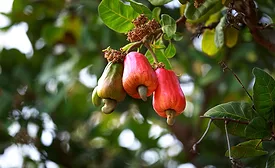Renewable, Cashew Nutshell Liquid-Based Polyols: Their Benefits in CASE and Polyurethane Foams
Evaluating the performance and key characteristics of CNSL-based polyols in the formulation of various PU systems, including protective coatings, adhesives, and foams.
Read More


